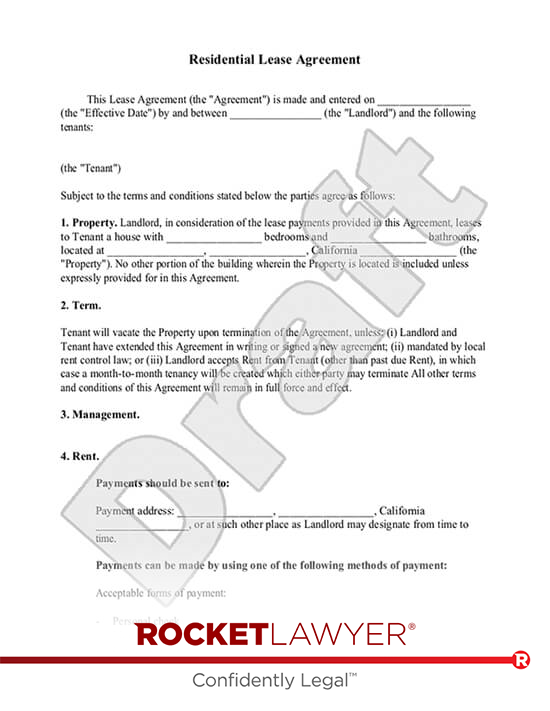Review Your Residential Lease
Like many tenants, you may have just scanned your residential lease agreement before signing it, eager to get into your new place. Reread the lease, line by line. It may include reasons you can break the lease without penalty, including:
- A job-related move if employed by the military or government; federal and state laws dictate the rules surrounding this reason in lease agreements
- A job-related move for any employer; only certain states have laws covering this reason in rental lease agreements
- Your health or that of an immediate family member; again, only certain states have laws covering this reason in residential lease agreements
If your lease does not include such reasons for termination without penalty, but your situation fits one of the above, research state law, as you may have options not included in the agreement.
Talk to Your Landlord
If your rental lease agreement or state law does allow you to terminate your lease without penalty because of your circumstances, explain the situation in writing to your landlord and give the required amount of notice. Make sure to get your landlord's agreement to terminate your lease in writing.
For situations not covered by your lease agreement or state law, your landlord may still agree to terminate your lease if you were a model tenant and it will not be difficult to lease the property after you move out. Also, rents may have risen significantly in your area, and your landlord may see your leaving as a way to make a much-needed market adjustment. Again, explain the situation in writing and get any agreement between you and your landlord in writing.
Other Reasons to Break a Lease
If the reason you want to terminate your residential lease agreement involves the rental property itself or your landlord's actions, you also may be able to break your lease without penalty. Such reasons include:
- Substantial destruction of the property through no fault of your own, such as a fire not of your causing or a natural disaster
- An unhealthy or unsafe environment, like the presence of mold or lack of repairs to exterior door locks
- Interference with your right to "quiet enjoyment," like continued violation of your privacy by your landlord
The laws around ending a lease agreement without penalty for the above reasons vary from state to state, as do the procedures required for requesting action on your landlord's part and providing notice of vacating the premises.
Get Your Security Deposit Back
Your rental lease agreement states the conditions under which you receive a refund of your security deposit. If you legally end your lease, give the required notice and leave the property in the agreed-upon state at the agreed-upon time, you should receive your security deposit in the time period noted in the lease agreement.
You can also do the following to help ensure you receive the full refund in a timely manner:
- Go over the renter's checklist you signed before move-in and make any repairs and/or perform any cleaning tasks required by the lease.
- Photograph the condition of the property.
- Do a final walk-through with your landlord.
- Ask your landlord to sign your copy of the checklist or provide other signed documentation of the condition of the property.
- Give your landlord a forwarding address for your security deposit.
Whether you are the property owner or the tenant-turned-landlord, fully understanding the terms and conditions of the lease and sublease agreements, as well as the state law governing the practice, will result in the best possible chance for a successful subleasing.
Please note: This page offers general legal information, not but not legal advice tailored for your specific legal situation. Rocket Lawyer Incorporated isn't a law firm or a substitute for one. For further information on this topic, you can Ask a Legal Pro.
